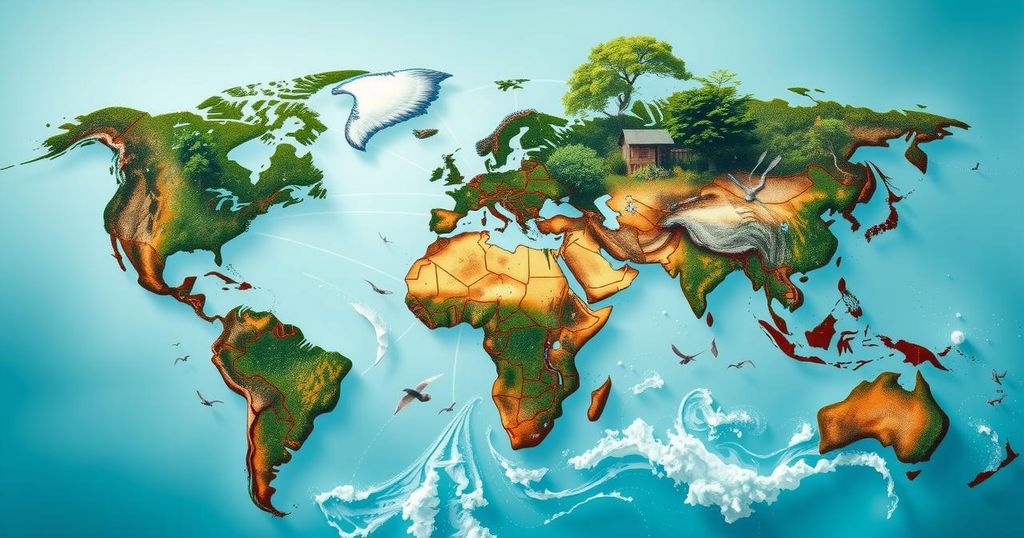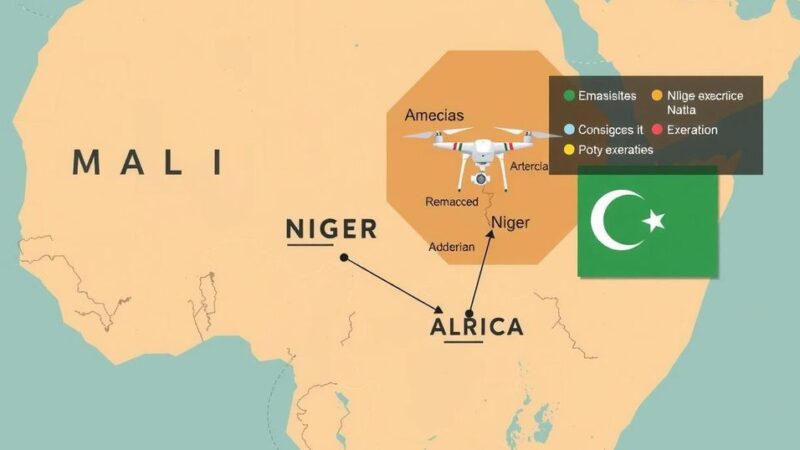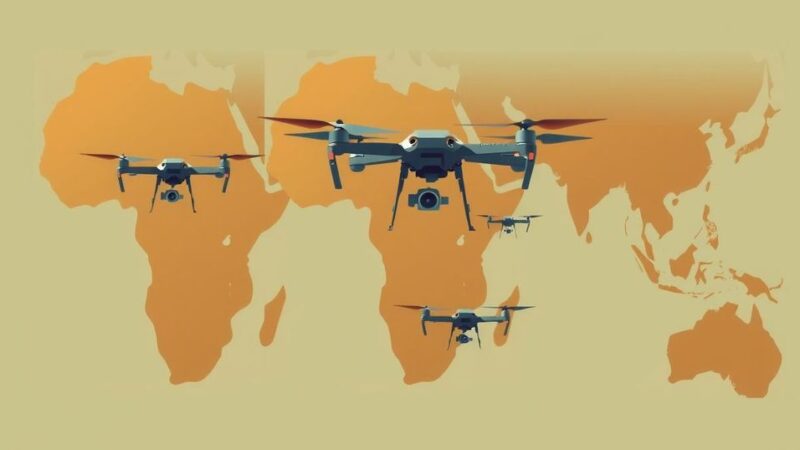The article addresses the urgent climate crisis by showcasing indigenous wisdom, innovative ecological initiatives like floating mangroves, and the critical role of Nationally Determined Contributions (NDCs) under the Paris Agreement. It emphasizes the vulnerabilities faced by young populations in resource-dependent regions and advocates for collaborative action to combat environmental degradation.
On December 9, 2024, various initiatives and perspectives addressing the climate crisis emerged, highlighting the intersection of indigenous wisdom and innovative environmental approaches. In the Amazon rainforest region of Ecuador, a significant indigenous leader shared insights rooted in spiritual understanding, emphasizing the importance of respecting and preserving life and nature amid environmental changes. Additionally, a novel study in Fiji experimented with the concept of floating mangroves, aiming to extend the ecological range of these vital ecosystems while enhancing their benefits for coastal areas.
Complementing these actions, there are pressing concerns over desertification and land degradation, particularly among the youth in vulnerable regions. Approximately one billion individuals under the age of 25 rely on local resources for their livelihoods, yet they face escalating risks from deteriorating land conditions. To combat these challenges effectively, countries must commit to their Nationally Determined Contributions (NDCs) under the Paris Agreement. These action plans outline specific strategies for reducing greenhouse gas emissions and adapting to climate impacts, which necessitate increasing ambition every five years to align with the global goal aimed at limiting temperature rises to 1.5 degrees Celsius.
The climate crisis represents one of the most pressing challenges of our time, affecting biodiversity, ecosystems, and communities worldwide. The United Nations has emphasized the significance of integrating indigenous knowledge and innovative environmental strategies to preserve life and nature. Indigenous leaders, particularly in ecologically rich areas like the Amazon, have invaluable insights that stem from a deep spiritual connection to their land. Concurrently, scientific research, such as that involving floating mangroves, seeks to utilize technology to extend the benefits of existing ecosystems. As climate threats amplify, particularly in regions prone to desertification, the reliance on local resources is becoming precarious, especially for younger generations who represent future stewardship of the planet.
In summary, confronting the climate crisis necessitates collaborative efforts that integrate indigenous knowledge with scientific advancement. The insights shared by indigenous leaders can guide effective conservation strategies, while innovative projects like floating mangroves can enhance ecosystem resilience. The role of youth in actively shaping sustainable practices cannot be overlooked. To ensure a sustainable future, countries must rigorously pursue their NDCs and adapt to climatic changes with renewed ambition and responsibility.
Original Source: www.un.org






